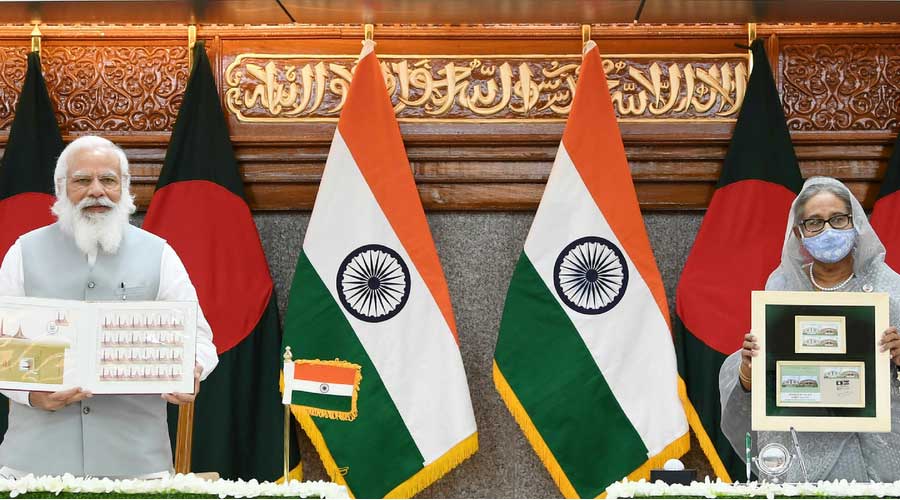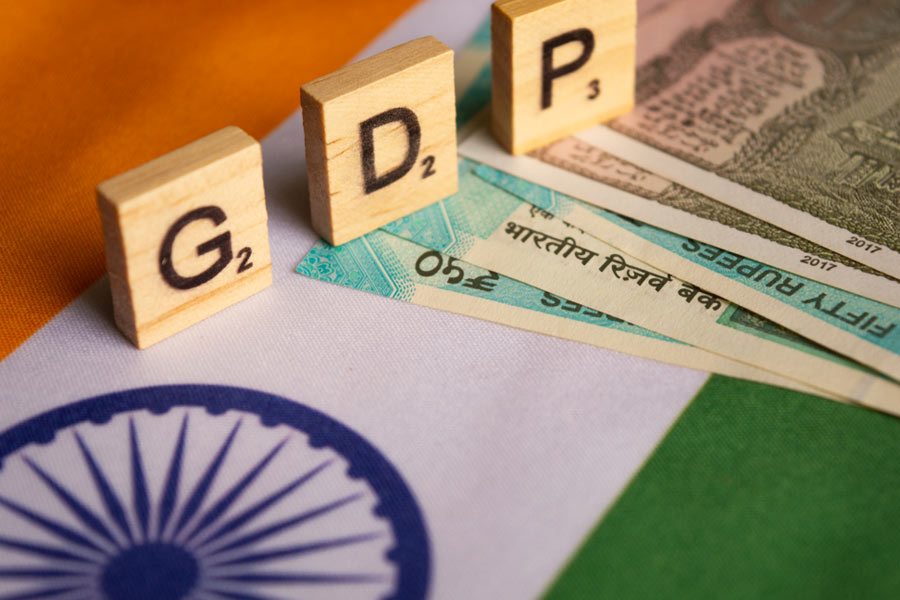Bangladesh’s friendly ties with India and bilateral cooperation are expected to gain momentum in 2023 despite some pending issues, especially the sharing of river waters, that Prime Minister Sheikh Hasina has said Dhaka believes could be resolved through negotiations.
Bangladesh-India relations are multifaceted in nature and rooted in a shared history, geographical proximity and commonality in their cultures.
The emotional bonds stemming from the contribution of India towards the liberation of Bangladesh in 1971 remain a dominant factor in the country's political, social and cultural web.
Being India's next-door neighbour, Bangladesh's relations with New Delhi are crucial for its political and economic stability.
The two neighbours have remained engaged bilaterally and, unlike some western nations, India usually refrains from commenting on Bangladesh’s domestic politics in public.
Former diplomat Humayun Kabir, who now runs Bangladesh Enterprise Institute, a non-government think tank, told PTI that owing to geographic reality and historic backdrop, "good relations" are likely to be there in place in the interest of both countries.
“But there is a general perception in Bangladesh that ‘we give more and get less’ – this concern must go and being the bigger neighbour, India is expected to take the lead role,” he said.
The two countries have several pending issues with the most crucial being the sharing of waters in common rivers, including the Teesta River, which flows through India.
Prime Minister Hasina has repeatedly said that Dhaka believes the outstanding issues with New Delhi could be resolved through discussions.
During her visit to India in September, she noted that India and Bangladesh share 54 rivers and sought an early conclusion of the Teesta water-sharing agreement.
"I recall that the two countries have resolved many issues in the spirit of friendship and cooperation. We hope that all outstanding issues, including the Teesta water sharing agreement, will be concluded at an early date,” she said at a joint media interaction with Prime Minister Narendra Modi in New Delhi.
“There are 54 rivers. As long as Prime Minister Modi is here, India and Bangladesh will resolve all these issues... Our main aim is to develop the economy and fulfil the basic needs of our people. With friendship, you can solve any problem. So we always do that,” she added.
Former foreign secretary Harsh Vardhan Shringla said last year that India will continue to engage with Bangladesh to conclude the Teesta agreement as soon as possible.
The Teesta river dispute is an important point of bilateral talks between India and Bangladesh, as the latter has sought a fair and equitable distribution of Teesta waters from India. The two countries also signed an agreement in 2011 to share surface waters at the Farakka Barrage near their mutual border.
However, the proposed deal was called off after repeated objections by West Bengal Chief Minister Mamata Banerjee. The water-sharing issue remains unresolved.
Interfaith harmony in Bangladesh and Dhaka’s ties with China over mega projects largely are also thought to be issues of concern to India. However, Bangladesh maintains that while Beijing is one of its major development partners, it will never undermine its close historic bond with India.
On the domestic front, politics and the economy are the two areas where the country is facing challenges in 2023.
Bangladesh is scheduled to go to polls in early January 2024.
“The governance system now appears as the crucial factor to sustain political stability and economic durability in the current context,” Kabir said.
His comments came as tensions rose with the return of former prime minister Khaleda Zia’s Bangladesh Nationalist Party (BNP) to the political scene after years of wilderness and are eying the upcoming elections.
BNP chief Zia has been debarred from political activities as she was jailed in 2017 for 17 years in two graft cases, though under a special government arrangement she is now staying at her home since the outbreak of the pandemic.
Her son Tarique Rahman now steers the party, but he too is convicted in several criminal and graft cases while two Bangladeshi courts have declared him a “fugitive”.
In the past two months, the BNP has staged public rallies in major cities across the country.
Prime Minister Hasina’s Awami League-led government has decided to tighten further its spending as trade imbalance and inflation eroded Bangladesh's GDP while a sense of panic gripped people due to fallout from money market volatility.
Financial analysts said Bangladesh's growth was remarkable but its economy was now at risk.
The Asian Development Bank (ADB) in a recent report feared that the GDP, which it predicted to be 6.6 per cent, now was likely to be lower in 2023-24, though the lending agency did not quantify any figure afresh.
The finance division in a notification issued this month stated that the spending in some cases will remain entirely suspended and would be lowered in some other areas.
According to analysts, Bangladesh's economy continued to grow during the COVID-19 pandemic, but the Russia-Ukraine war caused a setback with dwindling demand for the country's exports, mainly readymade garments, in the western markets and badly hit its foreign currency reserves.
Except for the headline, this story has not been edited by The Telegraph Online staff and has been published from a syndicated feed.











